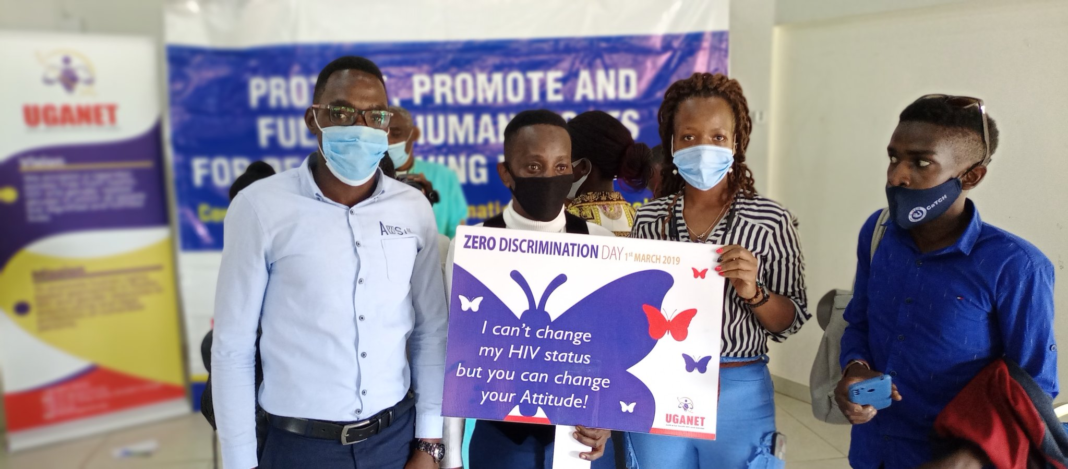Uganda Network on Law Ethics and HIV/AIDS (UGANET) has urged the government to prioritize sexual reproductive health rights for women and girls living with HIV/ Aids.
The clarion call was made by the executive director, Dora Kiconco during the commemoration of zero discrimination day marked on 1st March every year.
The recent reports indicate that HIV prevalence rate has decreased to 6.5%, over 1.4 million people living with HIV in Uganda, with women and young women in particular disproportionately affected. Still an estimated 60% of individuals infected with HIV are unaware of their infection.
She urged government to take action to end the inequalities surrounding income, sex, age, health status, occupation, disability, sexual orientation, gender identity which continue to be manifested in the Uganda.
“Uganda has a long way in observing sexual reproductive health, especially for women and girls who remain the most vulnerable in the community. The plight of women and girls empowers them to fight discrimination and increases their participation in creating an enabling social environment to tackle barriers to access care and treatment, stigma, discrimination and criminalization,” she said.
She said when HIV/AIDS stigma is thriving, we are not fighting HIV, instead of ending it in 2030, it will end in 2060.
“There are clear indicators which show that if we did what we are supposed to be done, the fight against HIV/AIDS would be close to cover,” she said.
“UGANET intends to use the virtual platforms to further raise awareness about the negative impact that stigma and discrimination of People living with HIV (PLHIVs) has on HIV Prevention, care and treatment efforts and the women’s sexual reproductive health rights.”
The organisation also intended at highlighting the gaps in policies, laws and practices that discriminate and encourage duty bearers to address them as well as standing in solidarity with marginalized and vulnerable groups who continue to suffer stigma, discrimination and social injustice.







